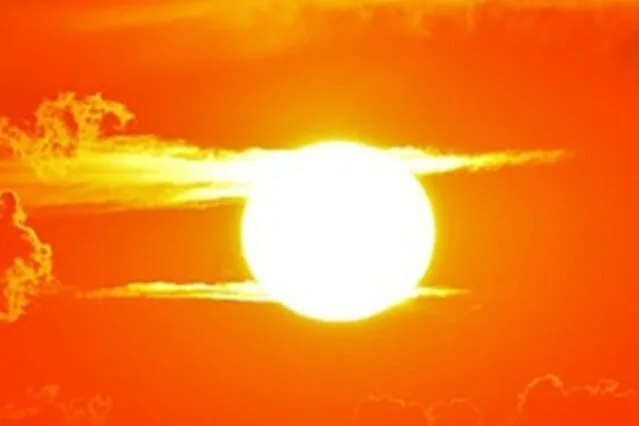Everything is bigger in Texas, and for three straight weeks, this has also included the record high temperatures set by an extreme heat wave blazing through the state, NBC reported. While CNN divulged that the rest of the world recently set a global record for the hottest day in history —July 4 temperatures capped at an unprecedented 17.8 Celsius (64.04 Fahrenheit) global average — Texas had become one of the hottest places on Earth by late June, NBC described. According to NBC, state temperatures “hit or surpassed 110 degrees Fahrenheit,” and triple-digit heat gripped numerous major cities in the state, such as San Angelo and Del Rio. This kind of weather is standard for parts of the world like northern Africa and the Middle East, but for Texas, its presence was rattling, NBC reported.
Heat waves, droughts and fires scorch the western U.S.
It seems like only yesterday that the western United States faced droughts and fires over the summer of 2020. Now, entering the coming summer, the western U.S. and other parts of the world are facing record-breaking temperatures for days on end. While weather is not the same as climate, patterns have emerged over the past decade with heatwaves, droughts and large forest fires that indicate a changing climate. This extreme weather has become the new normal in the western U.S.
Weekly Climate News
Feb. 18, 2021
Air pollution has been confirmed to result in 1 in 5 deaths annually around the world.
A NASA research team is going back to researching cloud formations after being impeded by the COVID-19 pandemic. They are working to understand how variations in aerosol particles from human and natural sources affect clouds.
A winter storm hit Texas, leaving many in frigid temperatures without power and electricity.
Elon Musk announced a four-year-long carbon capture contest that will award $100 million funding for the development of carbon removal technology.
U.S. government scientists said that America has the potential for a carbon-free future by 2050 if projected changes to wind and solar power are made.
Disha Ravi, a climate activist in India, was placed in jail for sharing information about the farmers’ protest with Greta Thunberg.
The U.K. government put a stop to construction plans for a deep coal mine after accusations of hypocrisy in regard to its current climate action arose.
Protests began in northern Minnesota to halt the progress of Line 3, an oil pipeline from the U.S. to Canada.
Weekly Climate News
November 12, 2020
A community conservation initiative to revitalize mangrove forests, a resource for fish and medicines as well as a natural mosquito repellant, is financing women’s businesses in Kenya.
A new research study indicates that hurricanes may be retaining surge strength once they move inland from coastal areas as a direct result of climate change.
Hurricane Eta made landfall in Florida, drenching the state in torrential rain and strong winds.
Data from acoustic and oceanographic instruments recovered by the Norwegian Coast Guard from iced-over waters north of Alaska will provide essential information for scientists researching Arctic Ocean climate changes.
A biotech startup in Singapore is making milk without animals or humans.
Renewable electricity installation is on track to hit global records in 2020, according to the International Energy Agency.
Austin, Texas plans to invest $7 billion on a new transit system which will include a 31-station rail system, rapid bus routes and bike lanes. $460 million will be allocated specifically to infrastructure for enhancing walking and biking throughout the city.
Rising sea levels may threaten two-thirds of NASA’s infrastructure, so they are taking steps to prepare. Read about it here.
Air pollution may cause threats to honey bee populations.


